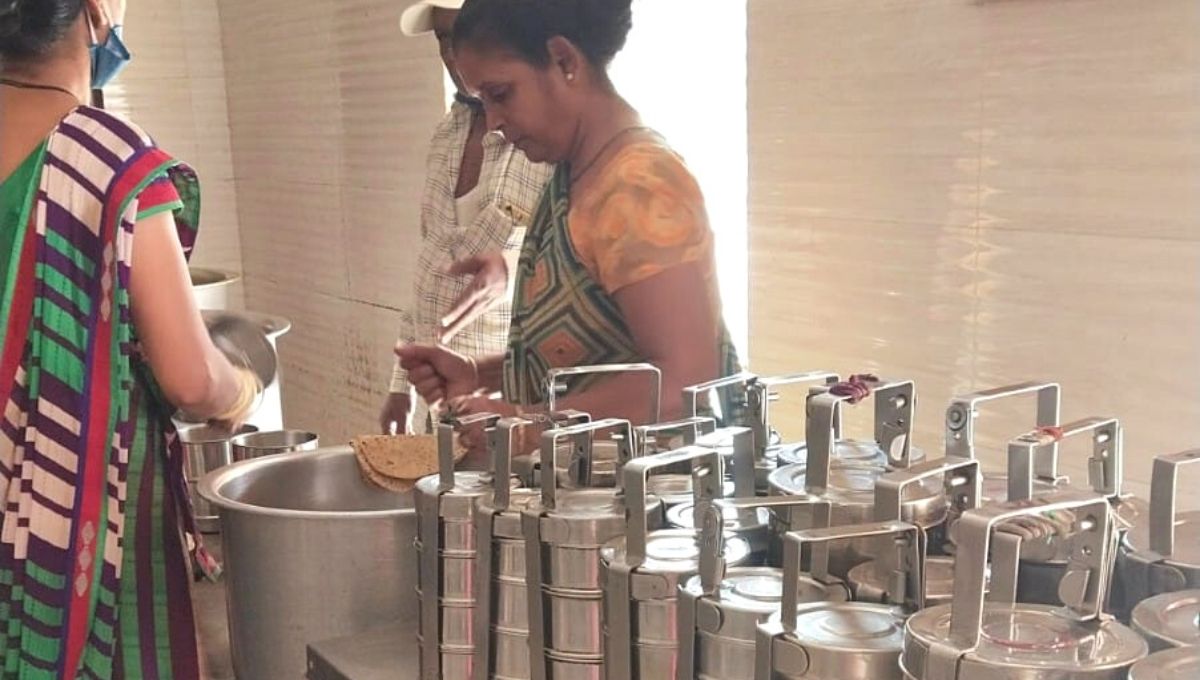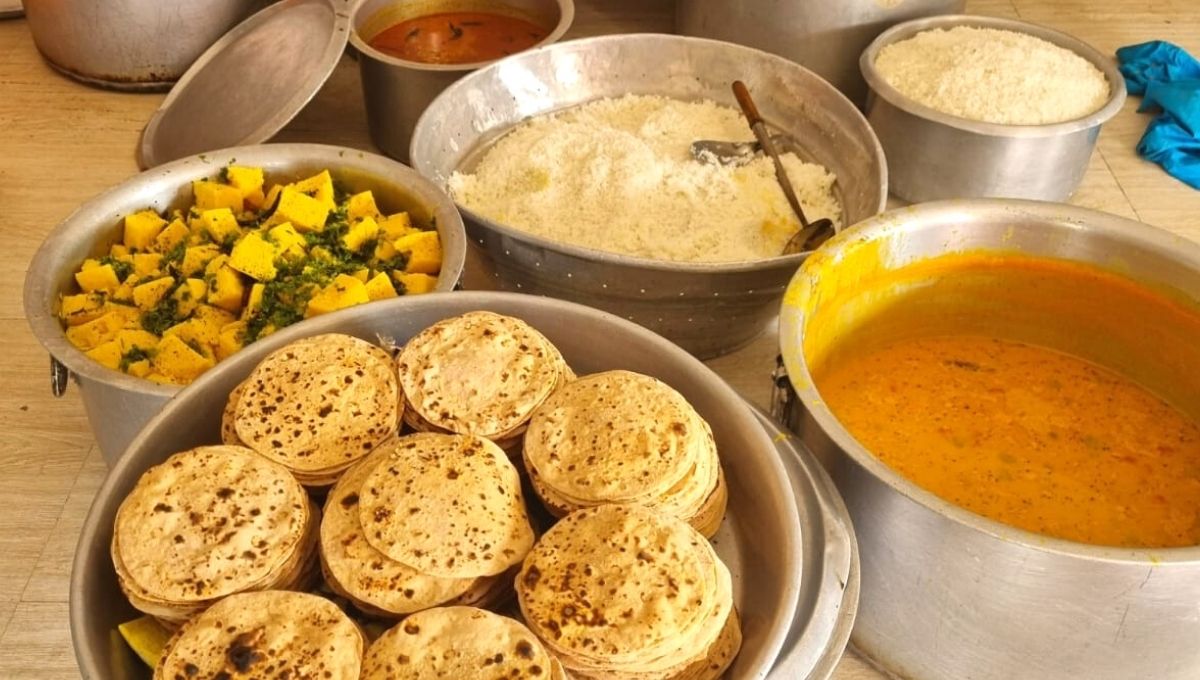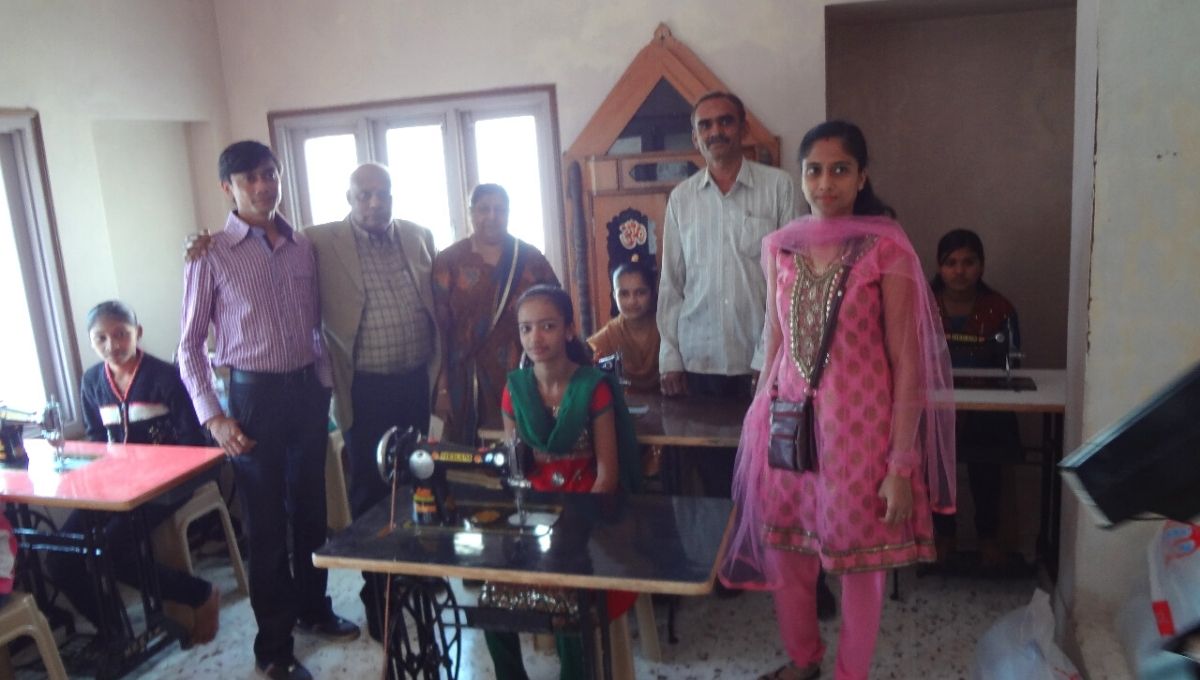That 190 million Indians do not have enough food to eat every day, and that one-sixth of our nation’s population remains permanently hungry, is a reality we see translated before us every day. And while some of us turn a blind eye towards this, Jamnagar-based Lavjibhai Patel could not.
An entrepreneur by profession, Lavjibhai traded oil and other food products for a living. Eventually, he and his wife Lakshmi moved to Haridwar Shantikunj to practice spirituality briefly.
The couple returned to Jamnagar in the late 1980s. One day, on his way back from a temple, Lavjibhai saw a person seeking alms and food outside G G hospital. His heart melted, and he shared the incident with his wife. The couple felt that besides practising spirituality, they needed to contribute to bettering human lives. The thought inspired them to start Gangamata Charitable Trust, a free food service for the needy.
Established in 1994, today the trust feeds over a thousand people daily. Though Lavjibhai passed away in 2011, his nephew Chandreshbhai continues to carry his legacy.
Relief to the poor

Speaking with The Better India, Chandreshbhai says, “Lavjibhai started feeding the poor on a minor scale. Initially, he requested his wife to prepare two tiffins a day and handed them to the poor. Eventually, the numbers increased. As the number of beneficiaries grew, he even set up a dedicated home kitchen and appointed staff to cook in large quantities.”
“GG Hospital is a government medical institute, and many persons from neighbouring rural areas visit for treatment. At least two persons accompany a patient at all times to take care of the medical needs or follow up with the doctor,” Chandreshbhai explains.
He adds that the kin of these patients have no means to afford food. “They manage to scramble some savings and carry the patient to the hospital via public transport. The relatives do not have a place to stay as they are poor and struggle to buy food. On many occasions, the relatives share one meal between the two or more persons.”
He also notes that some relatives are daily wagers, and if they accompany a patient, they lose on their pay for the day.
“Travel costs for the patient and relatives come up to about Rs 200 to Rs 400. Moreover, they spend at least Rs 400 on food each day for a minimum of three meals. If the treatment period extends, the cost for food and other needs increases steeply. The poor cannot afford such heavy expenses by losing income. The free tiffin service gives them small respite from the ordeal.”
With this thought, Lavjibhai started feeding hundreds of poor and eventually needed a bigger set-up. “The G G Hospital management recognised Lavjibhai’s efforts and allotted a room to establish a kitchen to show their appreciation for the cause,” he adds. The patients and their families were then given piping hot food, straight from the hospital kitchen.

Lavjibhai continued the same for almost 15 years without any external help. “He faced many financial crunches and at times found it difficult to manage the ever-increasing expenses, directly proportional to the number of beneficiaries,” he says.
Chandreshbhai adds, “The kitchen moved out a few years later as the hospital wanted to renovate the building. Lavjibhai shifted seven places before he identified a permanent spot on Pandit Nehru Marg and set up the trust in 1994 by investing Rs 25 lakh from his personal savings.”
He says he was 13 years old when he joined Lavjibhai’s cause. “I studied in another city but visited my uncle during vacations. I helped him distribute food and manage supplies. His two sons lived away, and as he grew old, Lavjibhai entrusted me with the responsibility of managing the trust,” he says.
Today, the trust feeds about 1,500 people daily. “Apart from the patient and their kin, elderly people abandoned by their children, or those with poor health who are unable to afford food, also receive free meals. We deliver food to over 200 elderly who cannot step out of the house due to physical ailments,” Chandreshbhai notes.
The trust offers two meals a day. The morning food consists of vegetable curry, wheat roti, rice, dal and buttermilk, while the evening menu includes bajra roti, vegetable curry, khichdi, kadhi and milk. “We serve sweets and snacks three times a week. The menu never changes, and the service functions all 365 days a year,” he adds.
Speaking about registering for the service, he says the needy persons approach the trust members through word of mouth. “There is no heavy publicity or marketing about the social cause. Moreover, the free food service started when cell phones or the internet did not exist. About 95 per cent of our existing beneficiaries do not have cell phones. Hence, traditional means of communication were the only way to reach beneficiaries,” Chandreshbhai says.
He adds that even now, beneficiaries follow the same method. “The details of each beneficiary are sought and scrutinised to understand their reason for being unable to afford food. Only genuine needy persons receive help. A young but unemployed youth cannot become eligible for our services,” he affirms.
He says the trust believes that able persons should put sincere efforts into earning a living for themselves. The poor can have as many tiffins as they need with no restrictions on the number of days the service is accessible.
‘Need more support’

The trust has extended its services by providing ration kits to the needy. “The initiative began during the lockdown. We also served food to about 8,000 people a day when the restrictions were imposed,” he says, adding the trust also organises free medical check-up camps, conducts free cataract surgeries for the elderly, and holds computer classes for girls occasionally.
Chandreshbhai says the trust wants to contribute more towards society. “We wish to provide blankets, clothes and other necessary items. But we have limited funds. The cost of operating free food services is Rs 25,000 per day. Fortunately, we have been able to continue the services without any gaps, thanks to the generous donors. There have been instances when the elderly have donated their entire life savings for the trust,” he adds.
Chandreshbhai notes, “The trust tries to serve the society to its best. We understand that we cannot provide a solution to all the problems and sufferings of the poor, but can be empathetic towards their pain by providing relief from our food services.”
Edited by Divya Sethu
No comments:
Post a Comment